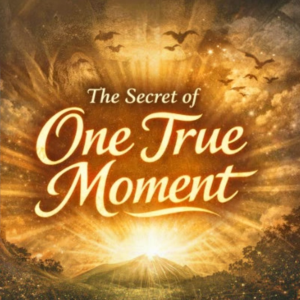Harnessing Our Thoughts
In Sichah 8 in Sichos HaRan, Rebbe Nachman makes an unusual statement about learning Torah. He says that when one learns a topic in Torah that relates to grief and calamity, such as the laws of mourning, he should learn quickly without going into depth. The reason for this is because thoughts are very powerful.
While the Rebbe does not go so far in this sichah as to say that learning the laws in mourning in depth could cause a person to find himself as a mourner, this can be understood from what he taught in Lesson 193 in Likutey Moharan. There he explains that thought has tremendous power, and a person can cause things to happen just by focusing his thoughts. For example, when saying Keriyas Shema, a person is supposed to have in mind that he is willing to sacrifice his life for kiddush HaShem. The Rebbe explains that if a person concentrates on this too much, he could actually die, and therefore needs to be careful. Similarly here, if a person delves deeply into the laws of mourning, he could create a situation of mourning for himself. Therefore, he should learn briefly just enough to the laws. Only when a person is actually in mourning should he learn the laws of mourning in depth.
If thoughts can create mourning and death, they can certainly be used to create positive things too, since there is a principle in the Torah that a good measure is 500 times more than a bad measure. In Likutey Moharan Rebbe Nachman says that the power of thought can even be used to obtain wealth. Certainly it could be used for spiritual matters, to grow in Torah learning, to improve our tefillah, to succeed in parenting.
When confronted with a challenge, instead of focusing on the grim outlook which will only help to assure the outcome is indeed grim, we should focus our thoughts on overcoming the challenge. Even if we do not know how we are going to do it, a concentrated thought that we will succeed will certainly help. Even if the eventual outcome is not what we wished, we know that the Gemara says that a person who wanted to do a mitzvah but was prevented from doing so gets credit as if he did it. What does he get credit for? He didn’t do anything. The credit is for his thoughts. Thoughts are so powerful that through thought alone, a person can effectively perform mitzvos. [We must note, though, that Rabbi Tzvi Aryeh Rosenfeld always stressed that a Jew should never settle for the “as if he did it” but should make every effort to perform the mitzvah in practice.]
This same principle was stated by the Baal Shem Tov in a different way. The Baal Shem Tov said that wherever your thoughts are, that is where you are. If a person very much wants to be at Rebbe Nachman’s tziyun in Uman, and despite his best efforts something out of his control prevented him from going, he is actually there. If a person is thinking about a mitzvah, he is doing a mitzvah. From this we can also understand why Chazal say that thoughts of sin are worse than the sin itself. When a person commits a sin he probably feels some remorse about it and doesn’t enjoy it to its fullest, but when he is thinking about the sin, he is totally involved.
Rebbe Nachman reveals in Lesson 50 in Likutey Moharan Tinyana that a person’s thoughts, this powerful weapon we have described here, are completely in his control. He can direct his thoughts in any way he chooses. Let us choose to use this power for good, to think thoughts of performing good deeds, to think that good things will happen to us and all of Am Yisrael, to think and believe that the redemption is coming today.
- 0 comment





















